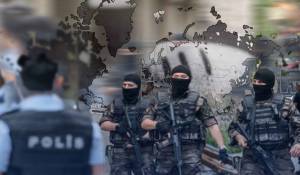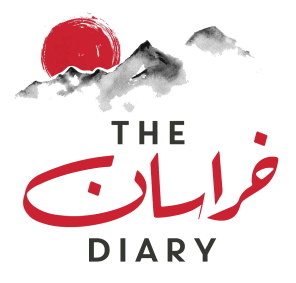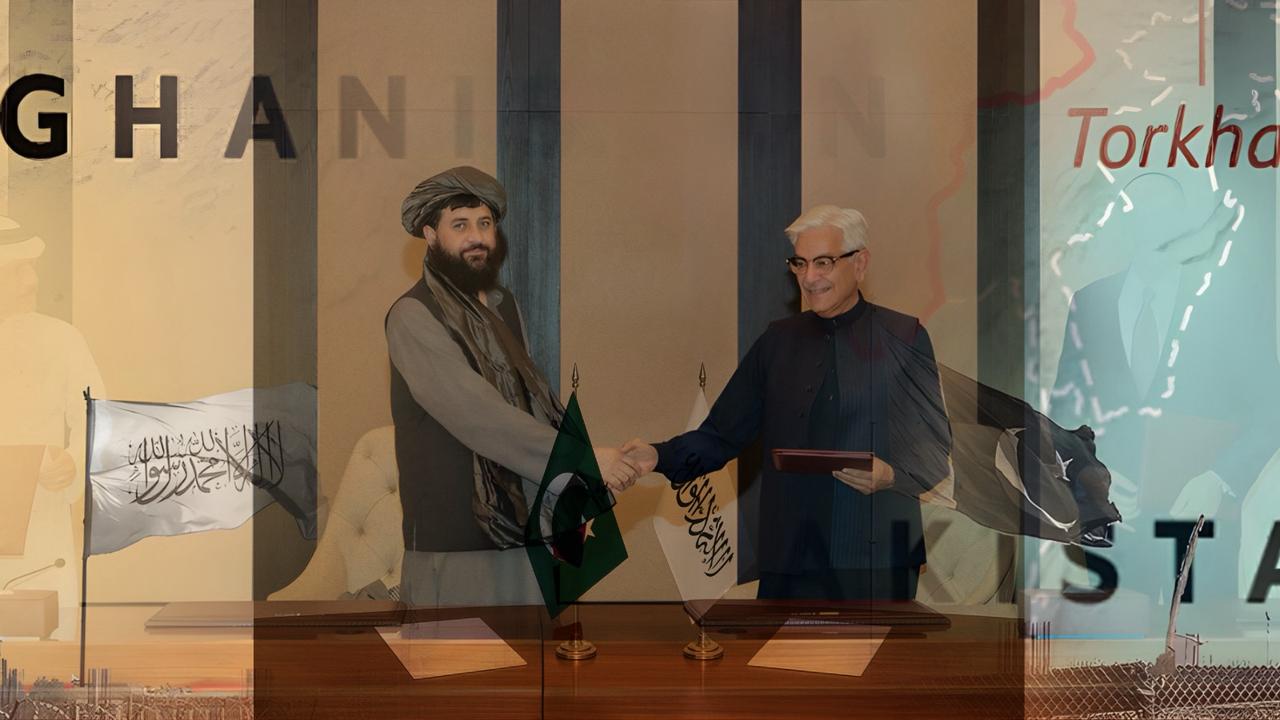
TKD Correspondent

February 07, 2026
By | TKD Correspondent

The third round of negotiations between Pakistan and Afghanistan took place in Istanbul, with Türkiye and Qatar serving as mediators on November 6, 2025. The Khorasan Diary spoke with stakeholders present during these talks, gathering insights into the differing perspectives and positions that shaped the diplomatic process. While many observers of Afghanistan were unsurprised by the outcome, there was initial hope for progress. This optimism was rooted in the previous round’s joint statement, which indicated both sides had agreed to establish a monitoring and verification mechanism to maintain peace and impose penalties on violators.
From Hope to Deadlock
Despite early signs of cautious optimism, the negotiations quickly took a turn for the worse. The sudden introduction of a new draft from Kabul led to shock and raised tensions in the room. The Pakistani delegation was surprised by the move, which brought underlying mistrust to the forefront and stalled the discussions. With differences growing and no breakthrough in sight, the parties were left to confront the expanding divide and the significant challenges ahead. The Pakistani delegation departed for Islamabad late evening on November 7, 2025.
Pakistan’s Approach and Core Demands
Pakistan’s lead, Lt. Gen. Asim Malik, presented a straightforward approach: prioritise security, facilitate trade, protect people, and insist on written verification. The documents did not exceed two pages. The Afghan side appeared to agree with the basic structure of the proposed agreement, but within 24 hours, a new document from Kabul reversed this progress. Mediators were visibly frustrated by the abrupt change, with one describing the new draft as “so ridiculous, it cannot be discussed.”
During the negotiations, Pakistan insisted on clear, visible, and verifiable steps against all anti-Pakistan groups operating within Afghanistan, pressing for concrete actions rather than vague assurances. However, the Afghan delegation countered by offering only broad “religious guidance” instead of a binding decree that would explicitly denounce war on Pakistan. In an effort to bridge the divide, a Joint Counter-Terrorism (CT) Mechanism was proposed to collaboratively address mutual security concerns. While the Afghan side initially appeared receptive to this idea, they later introduced a draft that denied the presence of any armed groups in Afghanistan, effectively reversing their earlier stance. This unexpected shift left the mediators stunned and resulted in the session ending without a joint note, though there remains a possibility for renewed discussions if Kabul reconsiders and returns to the previously agreed-upon terms.
What Pakistan Demanded?
Pakistan’s proposal was focused, demanding practical steps. The demands included:
• Prohibiting the use of Afghan soil against Pakistan, with specific names, locations, and a compliance calendar.
• Tangible, verifiable, and effective measures against terrorist groups, including dismantling safe houses, training locations, financial channels, and media outlets.
• A clear religious decree forbidding any call to holy war against Pakistan, to be publicly released in Kabul and Kandahar.
• An end to support by Afghanistan’s GDI and elements of the Haqqani network—no facilitation, shelter, funding, or cover.
• In exchange, Pakistan would fully open the border and facilitate trade, particularly for food, medicine, and perishable goods.
The Pakistani side emphasised that promises must be concrete: “We are ready to open everything the moment you shut down what hurts us. We will not accept a promise written in smoke.”
The Religious Decree Debate
The first major point of contention centered around Pakistan’s request for a religious decree explicitly forbidding war against Pakistan. The Afghan side responded that they could only issue “guidance,” not a binding decree, as their clerical structure could not be compelled to reverse decades of narrative. Pakistan explained the importance of a decree to delegitimise the religious justification for attacks, but the Afghan side remained unmoved, reiterating, “We can guide. We cannot command.” This led to a cooling of the atmosphere in the room.
Disagreement Over Counterterrorism Action
Pakistan pressed for visible actions against listed groups, proposing concrete evidence such as photos of dismantled facilities, lists of detainees, and mediator-logged steps. The Afghan side claimed their capacity was limited and public order fragile, repeatedly postponing action. They then shifted the blame, accusing Pakistan of hosting ISKP and permitting drone strikes. Pakistan categorically denied these allegations and, instead of merely refuting them, proposed a solution.
The Joint Counter-Terrorism Mechanism (JCM)
Pakistan introduced the idea of a Joint CT Mechanism (JCM), to be based in Torkham and Chaman and eventually expanded. The JCM would feature:
• Shared, daily-updated watchlists with case numbers and photos.
• A hotline logging every call, with timestamps and replay options for both sides.
• Surveillance cameras at border gates and neutral mediator access to audit trails.
• A legal desk for refugee cases with UN partners, and fast-track stickers for students and medical patients.
• Trade green lanes with RFID seals and penalties for tampering, ensuring politics does not hinder commerce.
This mechanism was intended to build trust, facilitate trade, and protect vulnerable groups, with documentation replacing rumours, said one official. The Afghan side eventually agreed in principle to the concept, raising hopes for a potential joint note.
The Kabul Draft and Breakdown
However, the arrival of a new draft from Kabul derailed progress. The document assigned responsibility for TTP to Pakistan, denied the presence of TTP or other armed groups in Afghanistan, and omitted commitments to the decree, verifiable action, or the JCM. It also ignored previously discussed trade and verification measures. The mediators were dismayed, with one calling the text “not serious” and another describing it as “a plan to fail.” Afghan delegates maintained that the draft was non-negotiable, leaving the talks at an impasse.
Mediators’ Perspective
Throughout the process, Qatar and Türkiye maintained neutrality, focused on facilitating an agreement that could be signed. They observed the Afghan delegation’s initial willingness to consider the JCM, followed by a complete reversal. They also saw Pakistan’s offer to open borders remain unmet due to a lack of verifiable commitments. Attempts to salvage the round with a chair’s summary failed, as the Afghan team rejected any language referencing verifiable steps or the existence of armed groups.
Current Status and a Standing Offer
The negotiations ended in silence, with the future of the process uncertain. However, Pakistan did not close the door on further talks. Its offer remains on the table if Kabul chooses to return to the previously agreed principles: shutting down anti-Pakistan groups through verifiable measures, issuing an unambiguous religious decree, ending support by state actors, activating the JCM, and facilitating trade and humanitarian access. As a senior Pakistani official summarised, “We brought a map, they tore up the compass. We are still here, the map is still here, the road starts the day they choose verification.” The next move now lies with Kabul.
Afghanistan’s Reaction
Zabihullah Mujahid, the Spokesman for the Interim Afghan Government, in a press conference held in Kabul on Saturday afternoon, November 8, 2025, stated that the issue between Pakistan and the Tehrik-e-Taliban Pakistan (TTP) is not a recent development nor a result of the Taliban's rule, but has existed since 2002.
Alluding to the peace talks between the TTP and Pakistan, a process that Pakistan blames the previous Pakistani Government for the current deplorable security situation, Mujhaid said, “The Taliban government made efforts to facilitate direct talks between the TTP and Pakistan, and the process had achieved notable progress.” accusing the Pakistan military of ending the process.
In February 2020, after more than a year of direct negotiations, the U.S. government and the Taliban signed a peace deal, called the Doha Agreement in which it was committed that Afghan soil will not be used against any country, but in 2023, a Pentagon assessment found that the Islamic State is again using Afghanistan as a base to plan and coordinate attacks across the globe.